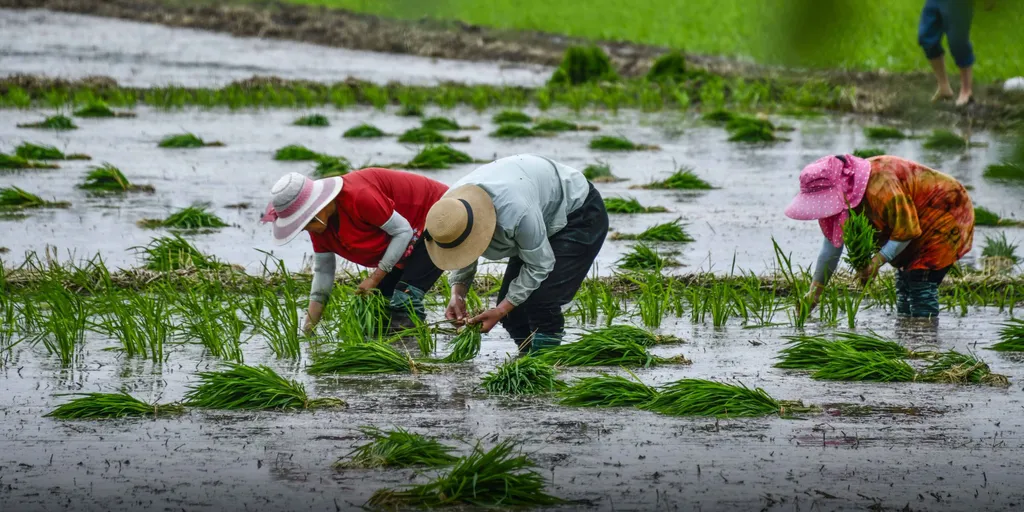In a groundbreaking study published in *Agricultural Water Management*, researchers have uncovered a promising pathway to simultaneously boost rice production and slash greenhouse gas (GHG) emissions in China’s rice paddies. Led by Qiang Xu of the Jiangsu Key Laboratory of Crop Genetics and Physiology at Yangzhou University, the research synthesizes data from 904 field studies and employs advanced modeling techniques to assess the impact of water-saving irrigation strategies. The findings suggest that scaling up these technologies could yield significant benefits for both farmers and the environment.
Rice cultivation is a major contributor to global GHG emissions, largely due to the traditional practice of flooded irrigation, which creates ideal conditions for methane production. However, the study reveals that adopting water-saving irrigation methods could increase rice production by up to 1.6% while reducing total GHG emissions by 26% and yield-scaled emissions by 28%. “This is a game-changer for the agriculture sector,” says Qiang Xu. “By implementing water-saving irrigation, we can achieve a win-win scenario where productivity and sustainability go hand in hand.”
The research leverages Random Forest models to predict the effects of different irrigation strategies across various regions, providing a spatially explicit analysis that highlights the key drivers behind these outcomes. The study also evaluates the national impact of scaling up water-saving irrigation through a trade-off analysis, classifying grid cells into categories such as win-win, lose-lose, win-lose, and lose-win. This nuanced approach underscores the importance of tailored, region-specific strategies to maximize benefits.
One of the most compelling findings is the potential to increase the proportion of win-win synergy—where both yield gains and emission reductions are achieved—to 32.6%, a 9.9% increase from current practices. However, the study also acknowledges that substantial trade-offs persist, emphasizing the need for complementary strategies such as optimized nitrogen use, improved crop genetics, and better residue management.
The commercial implications of this research are profound. For the agriculture sector, the adoption of water-saving irrigation technologies could lead to increased productivity and reduced operational costs, while also enhancing the sector’s environmental credentials. As consumer demand for sustainably produced food continues to grow, farmers who embrace these practices could gain a competitive edge in the market.
The study’s findings also point to the broader potential of integrating advanced modeling techniques with field data to inform agricultural policies and practices. By providing a clear, data-driven roadmap for scaling up water-saving irrigation, the research offers a blueprint for achieving sustainable intensification in rice production.
As the global community grapples with the challenges of climate change and food security, this study serves as a beacon of hope. By combining innovative technologies with regionally tailored strategies, the agriculture sector can pave the way for a more sustainable and productive future. The research, published in *Agricultural Water Management*, was led by Qiang Xu of the Jiangsu Key Laboratory of Crop Genetics and Physiology at Yangzhou University, highlighting the critical role of academic institutions in driving agricultural innovation.

